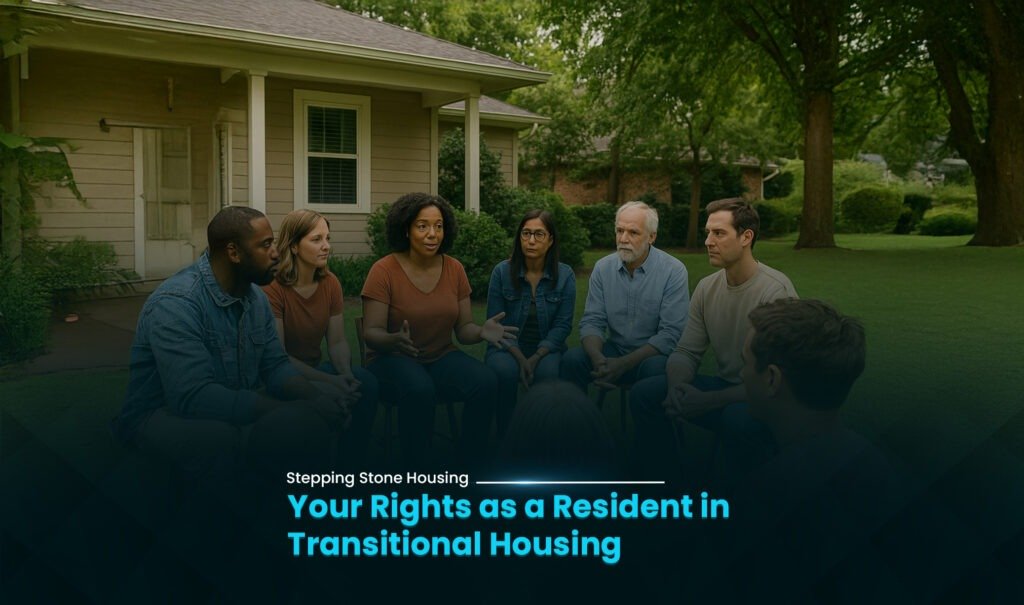Your Rights in Transitional Housing: A Complete Guide
First, experiencing homelessness brings incredible challenges. However, finding a place in transitional housing can feel like tremendous relief. Additionally, it offers a structured environment while providing vital support services. Nevertheless, even in supportive programs, residents maintain important rights. Therefore, understanding these rights proves crucial for your success. Furthermore, this knowledge empowers you to advocate for yourself effectively. Ultimately, it ensures you receive fair treatment throughout your journey. Consequently, this blog outlines your fundamental rights as a resident. Moreover, it helps you navigate your path in transitional housing successfully.
Understanding Transitional Housing
Initially, transitional housing serves as a temporary living solution. Specifically, it bridges the gap for individuals moving from homelessness. Subsequently, they transition towards independent, permanent housing with support. Generally, these programs have time limits but offer comprehensive services. For instance, this includes case management and life skills training. Therefore, it creates a structured, supportive environment for residents. However, it differs from traditional landlord-tenant relationships significantly.
Your Right to Safety in Transitional Housing
First and foremost, every resident deserves complete safety and security. Consequently, you have the right to a clean living space. Additionally, it should remain free from hazardous conditions at all times. Furthermore, you should feel safe from violence and harassment consistently. Moreover, this protection extends to interactions with other residents. Similarly, it covers all interactions with staff members as well. Therefore, if you feel unsafe, you must report it immediately. Subsequently, the program should address your concerns promptly and effectively.
Your Right to Respect and Dignity
Above all, you are a human being who deserves respect. Therefore, all residents have the right to dignified treatment. Specifically, this applies to every single interaction you have. Consequently, staff members should communicate professionally with you always. Additionally, they should treat you without judgment or discrimination. Furthermore, discrimination based on race or religion remains unacceptable. Similarly, discrimination based on gender, sexual orientation, or disability violates your rights. Therefore, you have the right to be heard clearly. Moreover, your opinions should be considered and valued appropriately.
Your Right to Privacy in Transitional Housing
Although transitional housing often involves shared living spaces, you still maintain privacy rights. First, you have the right to your personal belongings. Additionally, no one should search your belongings without proper procedure. Generally, this requires advance notice and a valid reason. Furthermore, your personal conversations should remain private and confidential. Similarly, confidentiality of your records represents another important right. Therefore, your space, even if small, should be respected completely.
Your Right to Clear Program Rules
Initially, transparency plays a key role in successful programs. Consequently, you have the right to understand all program rules clearly. Moreover, these rules should be provided in writing always. Additionally, they should be explained thoroughly and completely. Therefore, you should know what staff expects from you. Furthermore, you should understand the consequences of not following rules. Specifically, this includes potential reasons for dismissal from the program. However, if you don’t understand something, ask questions immediately. Subsequently, the program staff should clarify everything for you.
Your Right to Program Services in Transitional Housing
Initially, transitional housing programs offer essential services to residents. Therefore, you have the right to access these services fully. For example, this includes case management and counseling sessions. Additionally, it covers job readiness training and skill development. Furthermore, you should not be denied access without valid reasons. Consequently, these services are vital for your progress and success. Moreover, they make transitional housing effective for residents like you. Therefore, you should actively participate in all available services.
Your Right to Service Plan Participation
First, your journey toward independence is completely personal to you. Therefore, you have the right to participate in your service plan. Specifically, this plan outlines your goals and next steps. Additionally, your case manager should work closely with you. Furthermore, you should have input on your personal goals. Similarly, you should agree on the services you receive. Consequently, this ensures the plan fits your specific needs. Moreover, it empowers you to take ownership of your progress.
Your Right to Voice Concerns in Transitional Housing
Unfortunately, problems can arise anywhere, including transitional housing programs. However, you have the right to express concerns freely. Additionally, this includes formal grievances when necessary. Therefore, you should know the grievance procedure clearly. Furthermore, it should be outlined in writing for you. Moreover, you should not fear retaliation for voicing concerns. Consequently, expressing concerns helps improve the program for everyone. Additionally, it protects your rights as a resident effectively. Therefore, document your concerns carefully and follow established processes.
Your Right to Record Confidentiality
First, your personal information remains private and protected. Therefore, you have the right to complete confidentiality. Additionally, your records should be kept secure at all times. Furthermore, program staff should not share your information without consent. However, there are legal exceptions to this rule. Specifically, these relate to safety or legal requirements only. Nevertheless, your privacy is protected in most situations. Consequently, this builds trust between you and staff. Moreover, it encourages open communication throughout your stay.
Your Right to Reasonable Accommodations
If you have a disability, you have specific rights. Therefore, you have the right to reasonable accommodations always. Additionally, these help you access services more effectively. Furthermore, they ensure equal opportunity for all residents. For example, this might include physical modifications to your space. Alternatively, it could involve providing information in accessible formats. Similarly, it could involve modifying a rule for you. Therefore, you should clearly communicate your needs to staff. Subsequently, the program should engage in an interactive process.
Your Right to Proper Notice in Transitional Housing
Although transitional housing is temporary, you cannot be removed without cause. Therefore, you have the right to advance notice of dismissal. Additionally, this notice should be provided in writing always. Furthermore, it should state the specific reason for dismissal. Moreover, you should have a chance to address the issue. Consequently, this process ensures fairness for all residents. Additionally, it provides time to plan your next steps.
Your Right to Appeal Decisions
If you disagree with a decision, you have the right to appeal. Additionally, this includes dismissal decisions and service denials. Therefore, the program should have a clear appeal process. Furthermore, you should be informed of this process immediately. Consequently, this offers a chance to present your case. Moreover, it ensures a fair review of the decision.
Your Right to Progress Updates
You should know how you are progressing toward your goals. Therefore, you have the right to regular updates from staff. Additionally, your case manager should discuss your achievements regularly. Furthermore, they should address areas needing improvement as well. Consequently, this helps you track your goals effectively. Moreover, it empowers you to make informed decisions. Therefore, it keeps you engaged in your journey.
Your Right to External Resources in Transitional Housing
Transitional housing aims to integrate you into the community. Therefore, you have the right to connect with external resources. For example, this includes community services and healthcare providers. Additionally, it covers legal aid and other support services. Furthermore, the program should facilitate these connections actively. Moreover, they should not unreasonably restrict your access. Consequently, this helps you build a strong support network.
Your Responsibilities as a Resident
Rights come with responsibilities that you must fulfill. Therefore, as a resident, you have duties too. First, you must follow program rules consistently. Additionally, you must engage with services actively. Furthermore, you must work towards your goals every day. Moreover, you must treat staff and other residents with respect. Consequently, active participation benefits everyone in the program. Therefore, it helps you achieve stability more quickly. Moreover, it supports the program’s mission effectively.
What to Do If Rights Are Violated in Transitional Housing
If you believe your rights are violated, take action immediately. First, try to resolve it with your case manager. However, if that doesn’t work, follow the program’s grievance procedure. Additionally, document everything that happens to you. Furthermore, keep copies of all communications you have. Nevertheless, if internal processes fail, seek external help immediately. For example, contact local legal aid organizations for assistance. Additionally, reach out to homeless advocacy groups in your area. Moreover, your local Continuum of Care (CoC) might also assist.
Conclusion: Empowering Your Journey
Living in transitional housing is a journey of personal growth. Therefore, understanding your rights empowers you to succeed. Additionally, it ensures you receive fair treatment throughout. Furthermore, it helps you advocate for your needs effectively. Consequently, you have the right to a safe environment. Moreover, you deserve respect and dignity at all times. Therefore, you can access vital services for your success. Ultimately, knowing your rights promotes a successful transition. Additionally, it helps you build a strong foundation. Finally, it paves the way for a stable, independent future.
National Hotline for Homelessness


